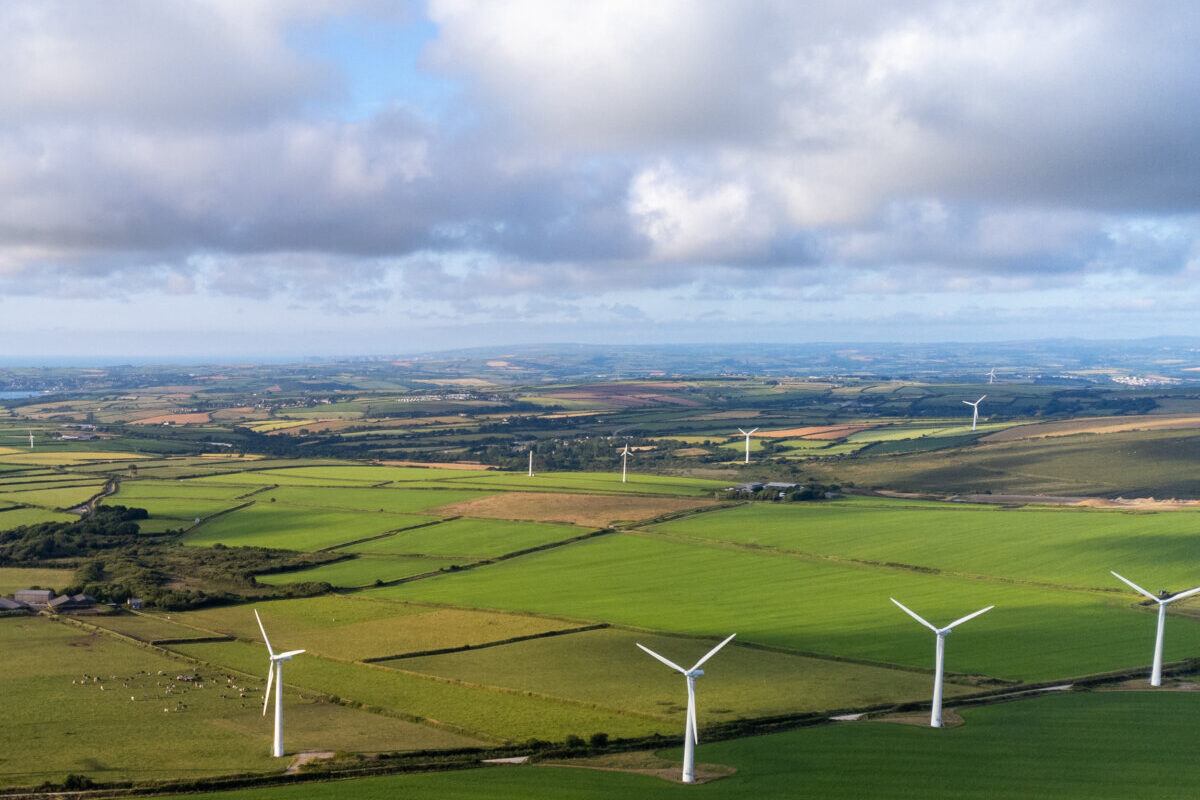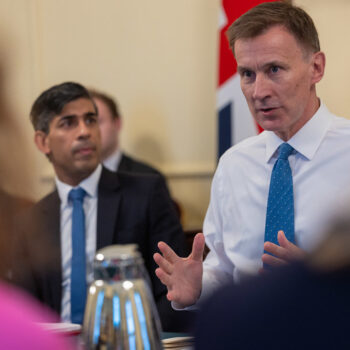Story
Warm Homes Plan
- A step-back in ambition: Today’s announcements no doubt represent a cut back in ambition compared to what was originally proposed. The original investment pledge from Labour was £60bn over ten years in green homes, or around £6bn a year. In the plan set out today, they have pledged £13.2bn over 5 years, or around £2.64bn per year. In comparison: this parliament, the Conservatives allocated £4.7bn to home upgrades, or around £0.9bn a year. So, while this represents an uptick from current levels, it is far below Labour’s original commitment.
- It is worth noting that the Energy Company Obligation – the major fuel poverty scheme currently worth £1bn per year – is not included in capital spending plans, as it is paid for via levies on bills. This means the total spend on energy efficiency is likely to be higher.
- There’s no better investment: Home upgrades are an investment in lower energy bills, energy security and better health. Citizens Advice finds a large-scale drive to bring homes up to EPC C by 2030 would deliver close to £40bn cumulative benefits to Britain by 2030 alone.
- A supply chain reality check: Over the past 10 years, inconsistent policy and funding cuts have created an unstable environment for installers, leading to a flight of workers and supply chain bottlenecks. Between 2012-22, the workforce shrunk 80%. Only 66,000 homes were upgraded under government-backed schemes in the past year, and a significant proportion of allocated funds have been returned to HMT.
- What’s needed by 2030: Labour’s plan to upgrade 5 million homes by 2030 would represent an uptick from today’s sluggish rates – but may still be insufficient to meet fuel poverty and heat decarbonation targets. The UK is committed to end fuel poverty by 2030, and National Energy Action predicts there are currently 6.5 million UK households living in fuel poverty. Meanwhile, the Climate Change Committee estimates we should be installing 1 million heat pumps by year by 2030.
- What’s needed next: Industry, households and local authorities need commitment to long-term funding and a strong regulatory framework. We urge Labour to demonstrate this, setting out a 10-year funding commitment, as well as regulations to drive upgrades in the private and social housing sectors.
A clean power sector
- A welcome focus on clean energy: Decarbonising the power sector by 2030 would make the UK a world leader, while boosting investment in the green growth sectors of the future. Therefore, today’s focus on GB Energy is welcome.
- Key aspects missing: However, certain aspects necessary for power sector decarbonisation were missing, including long-duration storage and hydrogen-to power. These investments will be crucial for ensuring energy security. Using GB Energy to invest in these technologies would accelerate their role out and reduce financing costs.
- Questions around nuclear: We see less of a role for GB Energy to fund nuclear power. New nuclear projects cannot be built in time to contribute to the 2030 clean power target. These projects are also incredibly expensive. Hinkley Point C is projected to cost up to £35bn. Therefore, the £5bn referenced (the £8.3bn minus the £3.3bn for local energy) will do little for nuclear energy investment needs but could be better invested in renewable technology, demand flexibility services, battery storage and green hydrogen long term storage – which offer far greater value for money and energy security.
- More targeted energy bill support needed: Targeted support for the vulnerable with their energy bills is a popular policy, and one Labour should adopt.
Future-proofing British industry
- A boost for British steel: £2.5bn of funding for steel decarbonisation, from the National Wealth Fund, is a welcome commitment. The sector is of immense social, strategic, and economic importance to the UK but has suffered from years of under investment. This new funding will enable the UK steel sector to decarbonise and increase its share in the rapidly growing market for green steel. It is welcome to see the allocation period moved forward to the first 5 years of a Labour government (rather than 10 years as initially planned). Labour should work with unions to map out how this can secure jobs in the sector.
- If Labour decides to pursue low carbon primary steelmaking, this fund may need additional capitalisation, or at least a better idea of how they will leverage a greater degree of private finance.
- More needed for industrial hubs: The commitment of £1bn to decarbonise industrial hubs, while welcome, is insufficient and pales in comparison to the support given to the steel sector alone, despite the remaining industrial sectors making up 86% of emissions. Moreover, there is no indication of funding for dispersed industrial sites, which contribute more than half of our industrial emissions. This continues the Tories’ neglect of sectors outside industrial clusters, and could fail to attract the investment these sectors need.
Mobilising investment at scale for UK green growth
- Some increase in funding, but much more needed: The proposed £23.7bn funding means the Green Prosperity Plan (GPP) goes some way to addressing the significant public investment gap Britain faces across its critical infrastructure. Unlocking the full benefits of the transition requires a Net Zero Investment Plan, in order to crowd in private finance.
- Financial and real economy reform must go hand in hand: Labour’s Financing Growth Plan, released at the end of January, set out a welcome emphasis on building a Green Finance Capital, reflected in today’s Green Prosperity Plan. This includes delivery of a world-leading green finance regulatory framework, alongside support for financial flow tracking, and recognition of the value of sectoral investment roadmaps.
- Building a National Wealth Fund that delivers: E3G welcomes the further detail today on Labour’s National Wealth Fund, setting out key areas of focus and its £7.3bn capitalisation. However, to maximise the benefit of this pledge, a few things are critical to bake in from the start – including a clear net zero mandate for the fund, scaled up technical assistance capacity across the UK, and the establishment of clear working relationships with the UK’s existing public investment institutions, such as the UK Infrastructure Bank and British Business Bank.
- Tax reform needed to unleash clean investment: We welcome Labour’s proposal to increase the rate of tax on oil and gas companies earning record profits from 75 -78 per cent and extend its lifetime by two years until 2029. An incoming government will also need to close the loophole that means for every £100 investment in new oil and gas developments, £91.40 can be claimed back. The UK’s tax regime needs to incentivise investment in clean energy and decarbonising the UK grid rather than extraction of oil and gas. Tax receipts from oil and gas are expected to decline significantly in line with production – and new investment will result in stranded assets and large decommissioning costs falling on taxpayers.
Quotes
Ed Matthew, E3G Campaigns Director says:
“There is no question that Labour’s commitment to its fiscal rules has massively constrained its green investment ambition. The fact remains that Labour has still pledged a major increase in green investment compared to the Conservative government’s plans. But this may not be enough to reach our climate and fuel poverty targets, and ensure we are internationally competitive – sparking life back into the economy. Labour will have to work hard to maximise the leverage of private investment, and back up the Plan with major tax incentives and smart regulation.”
-ENDS-
Available for comment
Heather McKay, Senior Policy Advisor, E3G – finance, investment, UK Net Zero Investment Plan
m: +44 (0) 7955 597676 | heather.mckay@e3g.org
Juliet Phillips, Programme Lead, E3G – green homes, private rented sector, energy efficiency, heat pumps
m: +44 (0) 7548 097 061 | juliet.phillips@e3g.org
Ed Matthew, Campaigns Director, E3G – UK politics
m: +44 (0) 7827 157 906 | ed.matthew@e3g.org
Note to Editors
- E3G is an independent climate change think tank with a global outlook. We work on the frontier of the climate landscape, tackling the barriers and advancing the solutions to a safe climate. Our goal is to translate climate politics, economics and policies into action. About – E3G
- For further enquiries email press@e3g.org or phone +44 (0)7783 787 863.


